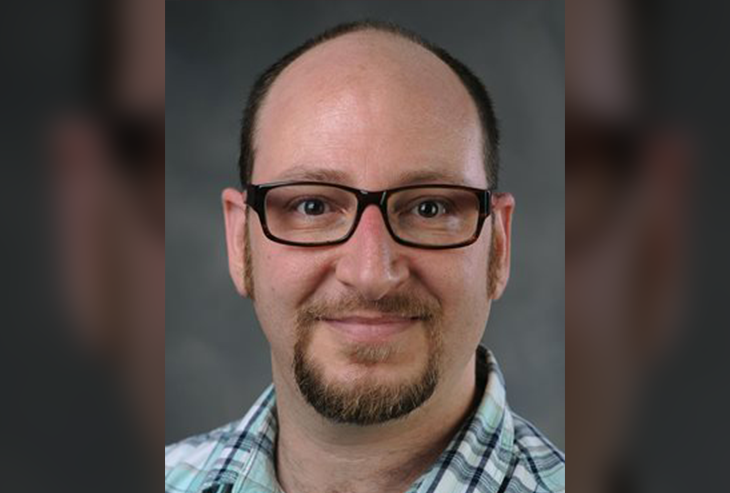Bloch-Schulman was honored for the article "Diversity Is Not Enough: The Importance of Inclusive Pedagogy" published in the journal Teaching Philosophy.
Professor of Philosophy and Chair of the Department of Philosophy Stephen Bloch-Schulman has won the 2020 Lenssen prize for the article “Diversity Is Not Enough: The Importance of Inclusive Pedagogy.”

The Lenssen prize is awarded every two years by the American Association of Philosophy Teachers for the best article on teaching philosophy. Bloch-Schulman was also awarded the prize in 2016.
The article explores the issue of diversity and inclusive teaching practices in philosophy as the field has traditionally not been inclusive, Bloch-Schulman said. The article was co-authored with Melissa Jacquart of the University of Cincinnati, Rebecca Scott of Harper College and Kevin Hermberg of Dominican College.
“It continues to be a discipline that is overly populated with straight, white, cis-gendered, able-bodied, well-to-do men,” he said. “There has been a lot of concern within the philosophy field, particularly with those who are interested in philosophy teaching, that it is unattractive or not welcoming to those who are not like that.”
There has been a push to diversify the field, through expanding topics that are discussed, such as issues on gender and race, and having teachers from different backgrounds. Bloch-Schulman argues that while these efforts are helpful, inclusive teaching pedagogies also need to be practiced.
“We say that’s all necessary but not enough, we also need these inclusive practices in a classroom that are going to be most likely to be welcoming and inviting and as much as is possible, level the playing field for the students in those classes,” he said.
One example of an inclusive teaching practice is the “growth mindset”, developed by psychologist Carol Dweck. She argues that when it comes to any activity, people tend to have one of two mindsets: either you think you are good at a skill or not, or that you can improve with practice.
“There’s evidence that philosophy as a field is particularly given to that first mindset, you have to have certain characteristics in order to be good at philosophy and if you don’t have those characteristics, you’re out of luck,” Bloch-Schulman said. “There have been studies that show that it’s particularly pernicious and prevalent in philosophy classrooms.”
Philosophy is a skill that students can develop, and a growth mindset is important to establish in philosophy classrooms, he said.
“One of the most important things to do is to not have a ‘you’re either good at it or not’ attitude but to encourage students to have the view that philosophy, like other skills, is something that you can improve through deliberate practice,” Bloch-Schulman said.
To Bloch-Schulman, the importance of winning the Lenssen prize is the continued recognition of the issues of diversity and inclusion within philosophy.
“What I’m really excited about is the importance that the Lenssen prize is placing on this very, very important need within philosophy,” he said. “I’m excited that it makes this article much more likely to be read by more people which I’m hoping will help encourage people to be thinking about how they teach more inclusively.”



